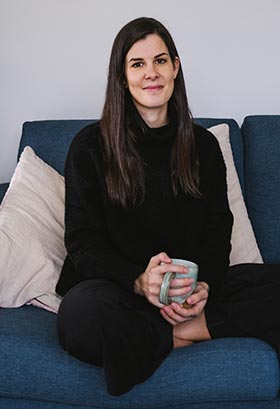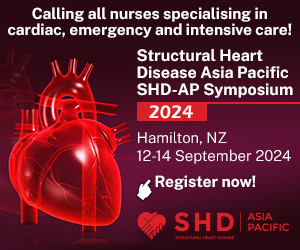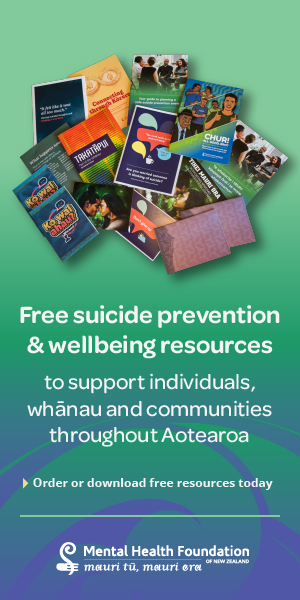
After leaving school and home at the age of 14 and living a rather rebellious life trying many different jobs and meeting people from many walks of life, Natalie Kerr has finally found her calling. Nursing has given her a purpose, she says. She only wishes she had found it sooner.
Kerr completed a one-year health science foundation course in 2016 at Whitireia New Zealand in Porirua before beginning her nursing studies. She was 26 by the time she began her nursing degree, sitting exams for the very first time in her life.
When her husband-to-be, a “military man”, was transferred to Auckland, Kerr went with him, continuing her degree at the Auckland University of Technology (AUT). This meant adding six months extra study to the three-year programme after completing year-one at Whitireia. During the extra six months, she also completed some paramedical papers.
Making the transition to AUT was hard, Kerr said. “There I was one of 150 students, most of them younger than me. I found the atmosphere in the big lecture theatres very formal after the friendly environment of Whitireia where there were fewer than 80 students in each intake. Emphasis at Whitireia was on hands-on learning, with lots of clinical labs and placements. We all felt very well cared for.”
Although Kerr completed her nursing degree three months ago, she did not apply for a position on the Advanced Choice of Employment (ACE) programme this year, as she and her fiancé are being re-posted to Wellington. She intends applying to ACE in November, in the hope of securing a new graduate position in early 2021. Meanwhile, now she’s familiar with the university system, she has started a couple of postgraduate papers for a master of health science. “I don’t want to stagnate in the interim.”
Her long-term goal is to become a nurse specialist or nurse practitioner.
Since leaving school, Kerr has tried her hand at many jobs. Her two-year stint in Melbourne working part-time as a manager of a bar gave her lots of experience in how to handle drunk patrons. This has stood her in good stead for the two student placements she has had in emergency departments (EDs) where, at weekends in particular, having to deal with drunks is par for the course.
She has also worked at Outward Bound as an enrolment co-ordinator, as a hospital assistant at Bowen Hospital in Wellington, as an administrator at a mechanics business, and has two children, now aged seven and eight. While she has lived in Auckland, the children have been with their father and stepmother in Wellington, a situation, Kerr says, they have adapted to well.
“As a young mother, I did not cope well. But their father and step-mum are wonderful parents who have given them a very stable home. People stand in judgement of me sometimes for not having my kids with me. This can be hard to cope with but we all choose our own pathways – mine is a strong one for me.”
A career for life
Kerr is convinced nursing will be her career for life. “This is the first thing I have ever stuck to. I know I want to be a nurse, not a doctor. Nursing is very hands-on, while doctors have rather fleeting relationships with patients. I like supporting people when they are at their most vulnerable. I also like the sisterhood of nursing. You have to work on your own a lot, but you also feel supported by the nursing team around you.”
Kerr’s poem 20.48 is the first she has ever written. She wrote it after a lecturer encouraged his students to be creative in their responses during their final paper. The poem describes some of the events at an Auckland hospital ED one evening, principally the experience of trying to help resuscitate a dying man, and comfort his grieving wife.
Part of a real scenario
Kerr had some resuscitation experience through the two paramedical papers she completed in 2018, but this was the first time she had been invited to be part of a real scenario. It was spending time with his wife that made the event so memorable.
“She had decided to drive her husband to the hospital rather than call an ambulance. The journey took half an hour.”
Kerr had been sitting with the wife in the resus bay before she was invited to continue with CPR. “I could hear his wife talking to him, begging him to come back to her. After my work, the time of death was called. Then I had to go back out to ED and continue helping other patients, none of whom had any idea what I had just been through.”
Despite the rawness of it all, Kerr loves working in ED. “I like the busyness, the quick turnover of patients before they are either discharged or sent to the wards. I feel I have the skills to look after intoxicated people and those with mental health issues. I did one of my placements at Paremoremo Prison. My life experience helped me there too – I certainly wasn’t scared of any of the facial tattoes I encountered.”
Kerr knows her life experience has made her resilient. Just as well, she says, as being the partner of a military man means you have to cope being on your own for long periods of time when they are posted away, either within New Zealand or overseas.

20.48
Coming to the end of shift.
Feet hurting.
Tired.
Hungry.
Lacking empathy for patient trying to get my number.
Take me seriously.
I am not cute.
Standing behind triage.
Split chocolate with preceptor.
Lady runs in.
Help.
HELP.
…help me?
Runs back out.
Male nurse runs out.
Runs in.
Grabs wheelchair without stopping.
Emergency bell.
Man purple.
Frothing.
Blue.
Frantic wife.
Resus bay one.
Too many people.
Get wife chair.
Sit on ground beside her.
Just me and her amongst chaos.
Chaos.
She reasons with me.
I tried to get here as fast as I could.
No time to call ambulance.
F**k, f**k, f**k! This isn’t happening
. . . is it?
I comfort.
I need to be honest.
Prepare her.
They are currently doing CPR.
Will they do everything they can?
He’s an old man they won’t care.
They will and are doing everything they can.
I explain what we can see.
The equipment that I know.
Ambulatory bag.
Defib.
Ultrasound.
Wife grabs my hand.
She can’t bear to look.
But does.
Pushes my hand away.
Why is it just me alone with her?
Preceptor comes over.
I stand.
Would you like to do CPR?
Are you confident?
Yes.
Yes.
Can’t leave wife alone.
Support worker joins.
I leave.
Excited.
Waiting behind nurse.
My turn.
Nil emotions.
Focused.
Feel rib crack.
Wife led in.
Come on… Wake up.
Come back to me.
Life.
Love.
Raw essence of both.
20.48.
Time of death.
Everyone stands back.
Eyes bulging.
Lips blue.
Unrecognisable.
Silence.
Wife cries out.
I picture my mother crying.
Breathe.
Not your place to shed tears.
Leave resus.
Check on patient.
Complains about waiting.
Tries to get number again.
No idea.
What I have just witnessed.
Debrief.
Receive praise.
Proud.
Guilty.
Shift end.



